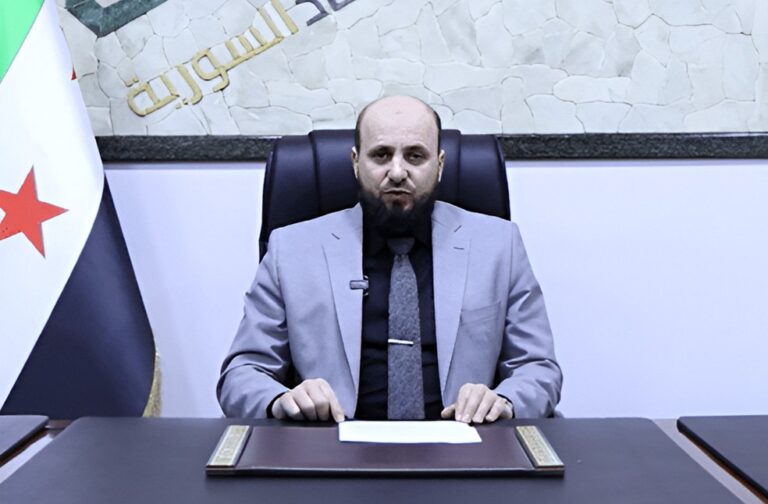Damascus, Syria: Mohammed al-Bashir has been named interim Prime Minister by Syrian rebels following the ousting of Bashar al-Assad’s regime.
The announcement signifies a major turning point in Syria’s ongoing transition after more than a decade of conflict.
Life in Damascus is beginning to show signs of recovery, with businesses reopening and a cautious return to normalcy. Al-Bashir, a veteran leader of the Hayat Tahrir al-Sham (HTS)-led Syrian Salvation Government, will oversee governance until March 1, 2025.
Al-Bashir’s appointment comes in the wake of Assad’s reported escape to Moscow amid the rebels’ swift takeover of the capital.
Drawing on his political experience in rebel-held Idlib, al-Bashir emphasized his commitment to stability, stating that, “Now it is time for the people to enjoy calm and rebuild their lives.”
Al-Bashir’s administration has also pledged accountability for crimes committed under the previous regime while engaging former government members to ensure a smoother transition.
The situation on the ground remains precarious. Israeli airstrikes continue to target Assad-aligned military positions, illustrating the broader geopolitical tensions surrounding Syria’s transition.
Regionally, key players like Turkey and Qatar have entered negotiations with the rebel leadership, hinting at potential shifts in Syria’s sovereignty under its new rulers.

The HTS’s prominent role in the new government raises questions from Western powers, given its extremist affiliations and history of alignment with al-Qaeda.
International recognition of the interim government remains uncertain, as diplomatic observers weigh the potential for inclusive governance against concerns about HTS’s influence.
The UN continues to describe Syria as the world’s largest refugee crisis, and returning families face destroyed infrastructure and scarce services. Rebuilding trust and unity among communities will be a key test for the interim government.
Global powers, particularly Russia and Iran, are closely watching the developments. Both nations were instrumental in supporting Assad’s regime, and his ouster has disrupted longstanding alliances.
For the United States, the new leadership poses a dilemma: balancing cautious engagement with calls for the HTS to distance itself from its extremist past.
As Syrians navigate this uncertain chapter, al-Bashir’s leadership will be judged by his ability to restore basic services, ensure justice for past atrocities, and foster an environment of stability.



